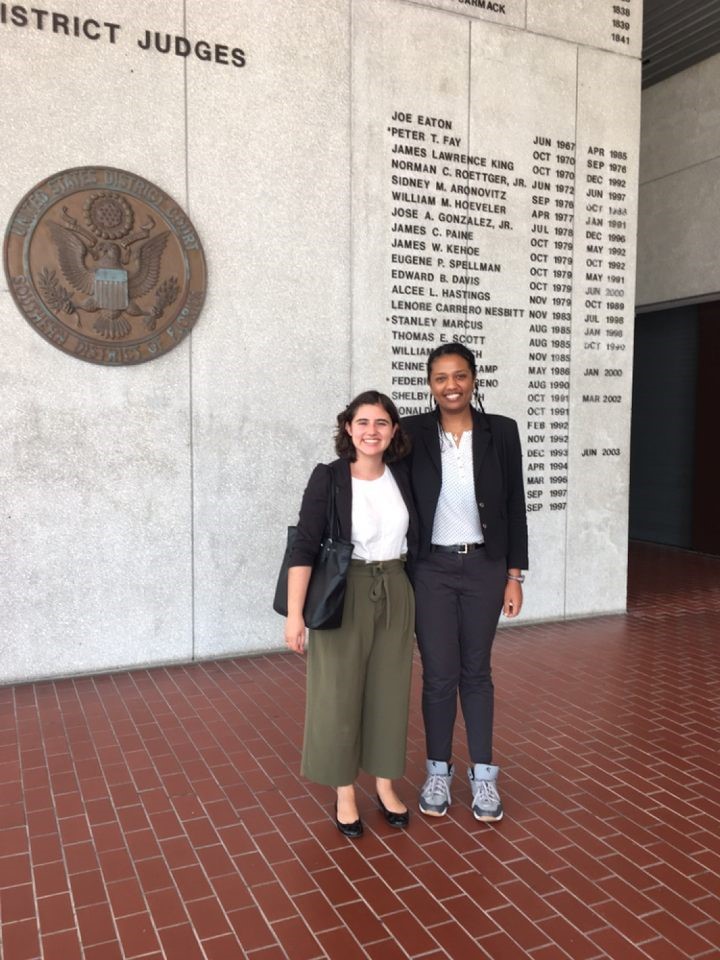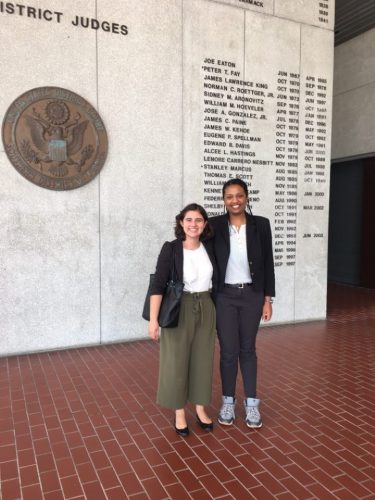
As part of my internship at Dade Legal Aid, I have had the opportunity to attend court hearings. I have attended family court hearings and domestic violence hearings with attorneys from Legal Aid. Eritrea and I have also had the opportunity to sit in on children’s court hearings and part of a criminal court case. Additionally, we have helped facilitate a clinic at the bankruptcy courthouse.
Our court proceedings
Eritrea and I have fallen into a rhythm when attending court. We confidently go through the security screening, knowing not to bring water with us. We head to a courtroom and introduce ourselves to the bailiff, asking if we could sit in on hearings. We sit quietly in the back and take notes. After, we discuss our thoughts about the cases with each other.
Similarities to church
Going to court is almost like attending Catholic mass in some ways. Everyone stands when the robed authority–the judge or the priest– walks in. The benches are similar to church pews. One should dress nicely, and it is recommended to dress for court as one would for church. It is frowned upon to have emotional outbursts and to speak out of turn. The authority stands for a greater purpose, be it God or justice. There are certain phrases one, as a participant, must say or agree to. There is a set procedure to follow and text to adhere to; for instance, the Florida statutes and the Holy Bible.
The participants
What keeps going to court interesting, however, is the people we see. Some judges are more strictly professional and some are compassionate, for example. Interpreters do their part to remove language communication barriers for Spanish and Haitian speakers. It is fascinating to watch interpreters at work as they basically have to process two languages simultaneously. Some parties remain composed the entire time while others can not contain their negative emotions at an unfavorable outcome. Some people bring friends and family for support while others go through it alone. These hearings offer us a fifteen minute snapshot of a person’s very complicated life. It is easy to forget to not rely only on first impressions, but that is part of going to court. Judges, for instance, have to assess people’s credibility.
Representation
For civil cases, people do not have the right to an attorney, unlike in criminal cases. In family court, there are many pro se litigants, which means they represent themselves. The issue is that family law can be complicated and difficult to understand. The decisions made in family court can also change one’s life, and that can be problematic if one does not know how to navigate the system. Family cases can take a long time, so even having an attorney can be expensive. This is without even considering all the forms–that most attorneys charge for completing and filing. There are barriers to legal representation for many. Fortunately, organizations like Dade Legal Aid represent the indigent and have pro bono lawyer referral services.

